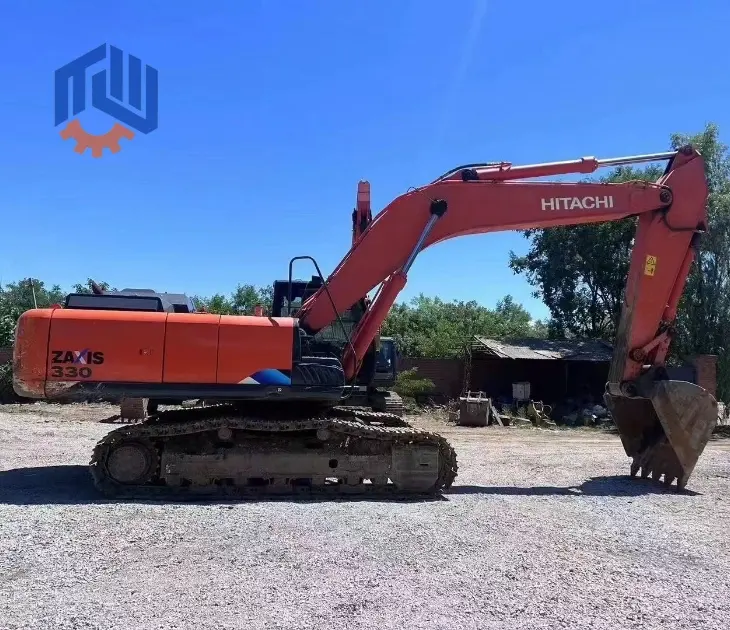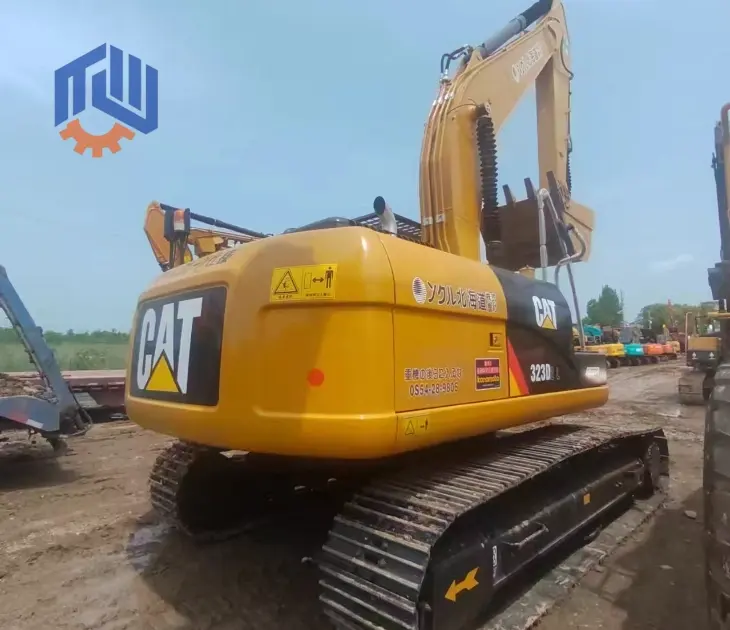De principiante a experto: puntos clave para seleccionar una excavadora usada
Release time: 2024-11-22
Excavators are widely used in industries such as construction, civil engineering, and mining. Due to the high cost of purchasing new machinery, many companies and individuals choose to buy used excavators when budget is limited. For beginners, choosing a high-quality and well-performing used excavator can be a challenge. In this article, we will walk you through the essential steps for selecting a used excavator, from beginner to expert, and incorporate long-tail keywords to help you navigate the process smoothly.
Understand the Used Excavator Market
Before purchasing a used excavator, it's important to understand the current used excavator market prices. The price of a used excavator is influenced by several factors, such as the brand, age, working hours, and maintenance history. Therefore, knowing the price range of used excavators in your area is the first step to making an informed decision. Popular used excavator brands include Caterpillar used excavators, Komatsu used excavators, and Hitachi used excavators, each with its own price range and resale value.
Choose the Right Brand and Model
When selecting a used excavator, well-known brands like Caterpillar used excavators tend to be more reliable than lesser-known brands. Big-name brands offer higher reliability and better availability of parts and maintenance support. For beginners, opting for a reputable brand can significantly reduce the risk of equipment failure and simplify maintenance.
In addition to the brand, it's also crucial to select the right model based on your specific needs. For example, if you are working in a narrow urban environment, a small used excavator may be more appropriate. However, for large-scale earthworks or mining operations, you may need a large used excavator model. Different models offer varying levels of efficiency and suitability for different working conditions, so it's essential to match the equipment to the job at hand.
Inspect the Equipment’s Operational Condition
The condition of the equipment directly impacts the lifespan and maintenance costs of a used excavator. When purchasing a used excavator, you need to conduct a thorough inspection of its key operational features, including whether the engine runs smoothly, the hydraulic system works as expected, and the tracks are not excessively worn.
When inspecting the equipment, pay particular attention to the hydraulic system, as it is one of the most critical components of an excavator. Improper maintenance of the hydraulic system can lead to expensive repairs. If possible, it's recommended to hire a professional technician to conduct a comprehensive inspection to ensure the equipment is free of hidden defects.
Also, check the working hours of the used excavator, which can usually be found in the equipment’s electronic system. Excavators with fewer working hours generally have less wear and tear on the components, making them better suited for long-term use.
Consider the Age and Usage Hours of the Equipment
The age and usage hours of a used excavator are essential factors in determining whether the equipment is worth purchasing. Generally speaking, excavators with working hours between 3,000 and 6,000 hours provide a good balance between a reasonable lifespan and performance. If the equipment has a high number of operating hours, you will need to pay extra attention to its maintenance and condition.
For beginners, it's advisable to avoid buying equipment with excessively high working hours, as these machines may have more frequent breakdowns and require significant component replacements. However, if you do purchase a machine with higher working hours, ensure that the seller provides a complete used excavator maintenance history, and that key parts like the engine and hydraulic pump have been replaced or serviced.
Review Maintenance History and Parts Replacements
It’s crucial to understand the maintenance history of a used excavator before buying. Every piece of heavy equipment has its own lifecycle, and long-term, heavy use may result in the wear and tear of certain components. Pay particular attention to critical components such as the hydraulic system and engine, as issues with these parts can be costly to repair.
Ask the seller for detailed maintenance records and ensure that the equipment has been regularly serviced and that parts have been replaced as needed. If the equipment has undergone repairs or part replacements, particularly for major components, this can give you more confidence in the machine's condition.
Evaluate the Price and Value
Balancing price and value is especially important for beginners. While used excavators are generally more affordable than new machines, a lower price doesn’t always mean a good deal. A significantly reduced price may indicate underlying problems with the equipment or a shorter remaining lifespan. When choosing a used excavator for value, it’s essential to consider the brand, age, working hours, maintenance history, and condition.
For example, an excavator with a long history but well-maintained may be priced lower, but if it has been regularly serviced and key parts have been replaced, it could still be a worthwhile investment. Therefore, be sure to assess the equipment’s market value and set a reasonable budget before making a purchase.
Check for After-Sales Service and Warranty
When purchasing a used excavator, it's important to ensure that the seller offers reliable after-sales service and warranty coverage. For beginners, after-sales support can be invaluable in the event of equipment failure, helping to minimize downtime and keep your project on track.
Some sellers provide a warranty period for used excavators, which can be especially beneficial for new buyers. During the warranty period, if the excavator experiences problems, you can receive free repairs, which can significantly reduce the cost of maintenance and repairs.
From beginner to expert, selecting a used excavator involves a careful assessment of the market, the brand, the model, the equipment’s condition, maintenance history, and price. By understanding the used excavator market price, choosing the right brand and model, thoroughly inspecting the equipment’s operational status, reviewing maintenance records, and considering after-sales service, you can make a well-informed decision.
Remember, buying a used excavator is not just about the upfront price; it’s also about the long-term reliability, maintenance costs, and overall value. By carefully selecting your equipment, you can ensure that you get the best machine for your project, helping to keep your operations running smoothly and efficiently.


 />
/> />
/>